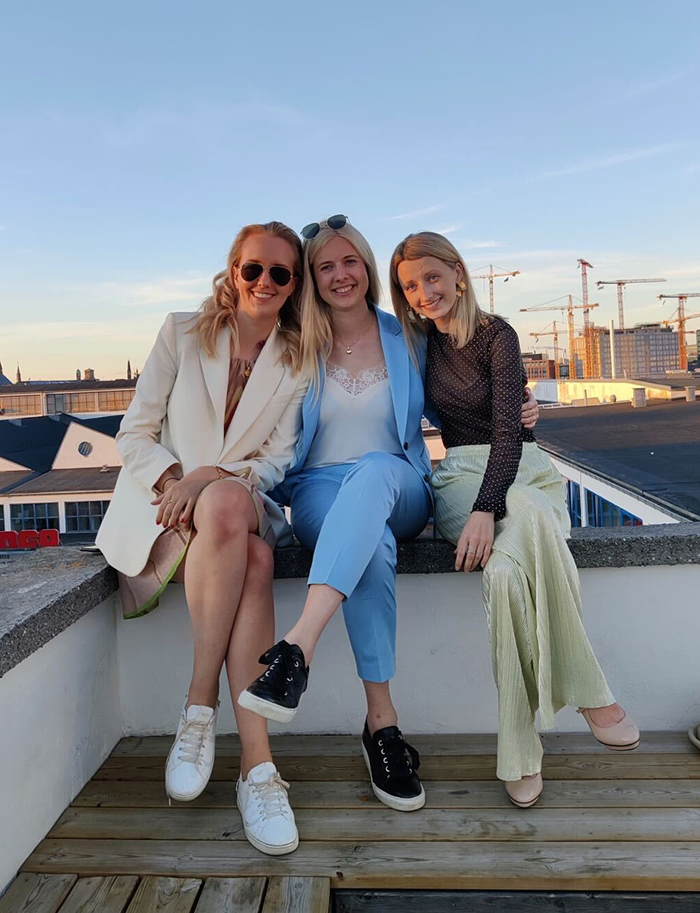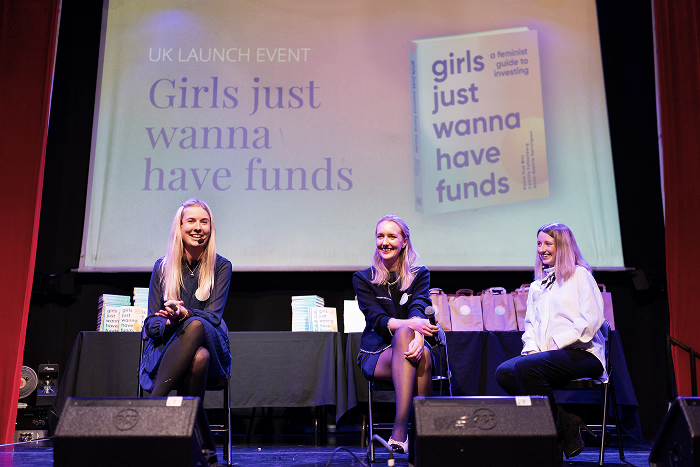2/9/25
The Feminine Is Under Attack – And We Need to Take It Seriously
The Feminine Is Under Attack – And We Need to Take It Seriously
Feminism is being mocked. Gender equality initiatives are being dismantled. Misogyny is trending on social media. In a time when femininity is under siege - both culturally and politically - it’s never been more important to reclaim the word feminist.
My name is Emma, I’m the co-founder of Female Invest, and in this article, I want to talk about why it’s time to stop whispering and start insisting on calling ourselves feminists - and why at Female Invest, we refuse to stay silent.
Not A Feminist
You’ve probably heard it before. Maybe you’ve even said it yourself:
“I believe in equality but I wouldn’t call myself a feminist.”
It sounds harmless. But that sentence reveals more than we think. It carries a subtle rejection of something we all, on the surface, claim to support. Because what exactly is it we’re distancing ourselves from?
Feminism, at its core, is about equal rights and opportunities for all genders. So why has the word become something people feel they need to defend themselves against?
This isn’t just a linguistic quirk - it’s a cultural and political warning sign.
Around the world, women still earn less, own less, and hold less power. And yet, fighting for equality is seen as radical. Not empowering - but inconvenient.
Why The Backlash - And Why Now?
In recent years, the fight for gender equality has gained a momentum we haven’t seen in decades.
Movements like #MeToo have cast a global spotlight on harassment and abuse of power. We’ve seen more women rise to top leadership roles - in politics, in business, and in entrepreneurship.
And at Female Invest, we’ve witnessed firsthand how thousands of women are seeking out spaces where they can learn to take control of their financial futures.
Something is shifting. A new kind of awareness is taking root.

But history shows us that progress almost always triggers backlash. When historically marginalized groups begin to gain voice and influence, the systems and structures built to preserve the status quo start pushing back.
That kind of change rarely feels neutral - especially to those who have the most to lose.
And we’re seeing that backlash grow. Not only through blatant political moves - like rolling back women’s rights or shutting down diversity initiatives - but also through more subtle channels: algorithms, meme culture, and ‘the manosphere’.
Misogyny is being repackaged as entertainment. Feminism is made into a joke. And it's all being sold as “neutrality” - as a return to “shared values.” But don’t be fooled.
This isn’t neutrality - it’s a deliberate undoing of progress.
A slow dismantling of rights that women and minorities have fought for, for decades.
And that’s what makes it so dangerous.
This isn’t just about opinions in comment sections anymore.
It’s policy.
It’s structural.
It’s algorithms boosting anti-feminist voices to the top of our feeds.
It’s a cultural climate that risks making young people more afraid of speaking up than of living with inequality.
When Fiction Feels Less Extreme Than Real Life
We watch The Handmaid’s Tale and call it dystopian fiction. But how fictional does it really feel?
Just look at Afghanistan, where women have been erased from public life. They’re banned from education. From singing, dancing, showing their hair - or even moving freely.
Look at Iran, where refusing to wear a hijab can mean prison, lashes, or constant surveillance. Where courage can cost you your life.
For millions of women, this isn’t a dystopia - it’s daily life. And the price of freedom is higher than ever.
Even here in the West, where rights are often taken for granted, we’re watching hard-won progress being rolled back - and anti-feminist rhetoric moving from the fringes into the mainstream.

Misogyny, Rebranded
There’s a part of the internet where misogyny isn’t lurking in the shadows - it’s front and center, repackaged as content, monetized, and delivered with a smirk. In the manosphere, on incel forums, and across platforms like YouTube and TikTok, it’s disguised as satire, cultural critique, or “men’s self-improvement.”
It might look harmless on the surface - but it’s anything but.
Enter figures like Andrew Tate and Jordan Peterson, with millions of followers and a constant stream of messages that portray women as either too much - or never enough.
And far from being seen as extreme, their content is rewarded. Amplified. Shared. Boosted by the very systems around them.
What used to be fringe views are now part of everyday content in young people’s feeds. These aren’t outliers anymore. They’re mainstream.
And that should concern all of us.
Mockery As a Tool of Control
But the danger doesn’t stop at algorithms and legislation. What makes modern anti-feminism especially insidious is its use of humour as a weapon.
You’ve probably heard the kind of jokes:
“What was it we didn’t like about feminists again?”
“Uhh… I guess they’re just kind of angry?”
It gets a laugh. But the punchline hides a powerful mechanism: when something is constantly turned into a joke, it becomes easier to dismiss. To tune out. To avoid taking a stand.
We see it every day - feminism turned into memes. It seems harmless. But strategically used, humour is one of the most effective tools to create distance.
Because once something is consistently made fun of, it becomes risky to take it seriously.
It silences people not because they disagree, but because they don’t want to be that person. The angry one. The sensitive one. So they say nothing.
The conversation shifts away from content and into tone. We stop talking about inequality and start debating whether someone is “overreacting.” Being calm becomes more important than being right. The person who speaks up becomes the problem, not the injustice itself.
It’s the social version of structural oppression: when the norms in a room make it easier to laugh along than to speak up. And it works - because it keeps people out of the debate, and shifts responsibility from systems to individuals.

The Feminine Is Under Attack - And It Matters
This isn’t just about gender. It’s about the feminine. It’s about the traits and values society has taught us to dismiss or ridicule - empathy, intuition, community, vulnerability, collaboration. We downplay them in women and shame them in men. We call them soft. And we’re taught early on that soft means weak.
But that’s a lie.
The feminine isn’t weak - it’s deeply human.
Look at how a man wearing pink, nail polish, or a skirt is met with mockery, aggression, or disgust. Not because it’s dangerous but because he’s chosen something seen as “lower” in the social hierarchy.
Or look at suicide statistics: far more men than women take their own lives. Not because they’re weaker - but because they’ve been denied access to the “feminine” - to talking about feelings, asking for help, being vulnerable. And that comes at a cost.
So when we talk about feminism, we’re not just talking about women’s rights. We’re talking about everyone’s right to be whole human beings - with access to both the masculine and the feminine, without shame or punishment. That’s what’s at stake.
And that’s why we have to speak up. Boldly. Clearly. Without apology.
To say the word feminist out loud - with pride and with purpose. Not to provoke - but because the world still underestimates, shames, and attacks the feminine.
And feminism? It shouldn’t be controversial.
It should be common sense.
